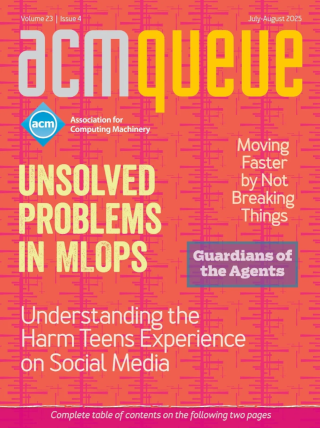
Can More Code Mean Fewer Bugs?:
The bytes you save today may bite you tomorrow
Dear One, You almost had me with your appeal to simplicity, that having a single line with system() on it reduces the potential for bugs. Almost, but not quite.
Toward Higher Precision:
An introduction to PTP and its significance to NTP practitioners
It is difficult to overstate the importance of synchronized time to modern computer systems. Our lives today depend on the financial transactions, telecommunications, power generation and delivery, high-speed manufacturing, and discoveries in "big physics," among many other things, that are driven by fast, powerful computing devices coordinated in time with each other.
A Generation Lost in the Bazaar:
Quality happens only when someone is responsible for it.
Thirteen years ago, Eric Raymond’s book "The Cathedral and the Bazaar" (O’Reilly Media, 2001) redefined our vocabulary and all but promised an end to the waterfall model and big software companies, thanks to the new grass-roots open source software development movement. I found the book thought provoking, but it did not convince me. On the other hand, being deeply involved in open source, I couldn’t help but think that it would be nice if he was right.
Fault Injection in Production:
Making the case for resilience testing
When we build Web infrastructures at Etsy, we aim to make them resilient. This means designing them carefully so that they can sustain their (increasingly critical) operations in the face of failure. Thankfully, there have been a couple of decades and reams of paper spent on researching how fault tolerance and graceful degradation can be brought to computer systems. That helps the cause.



